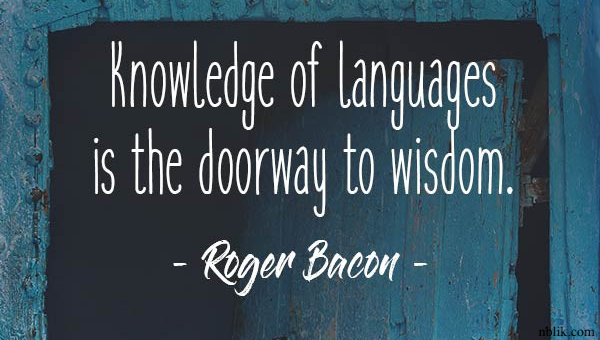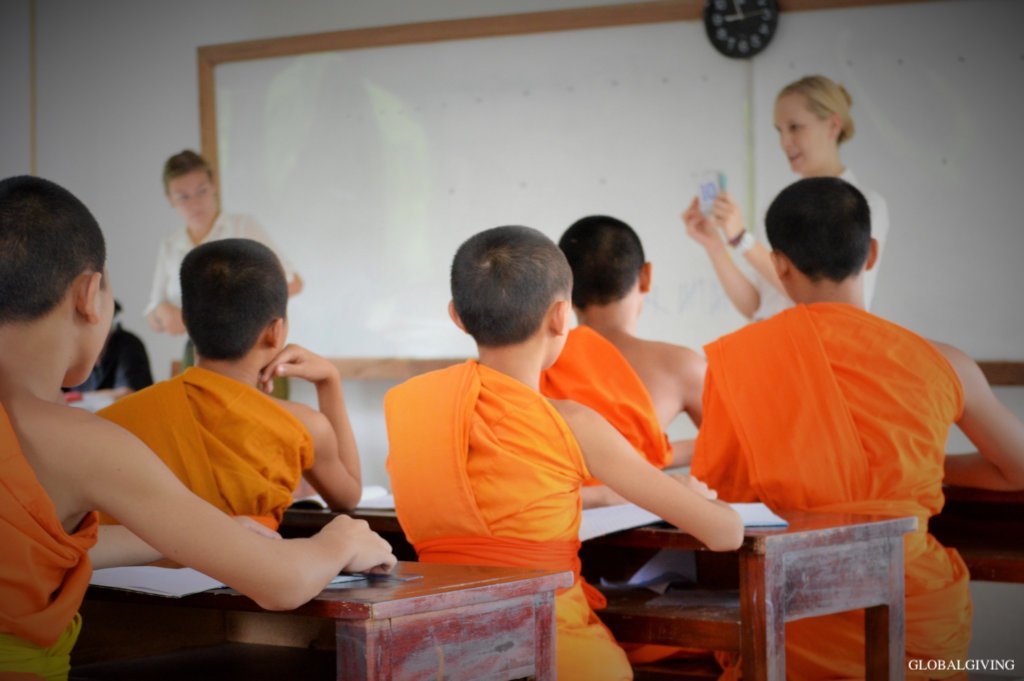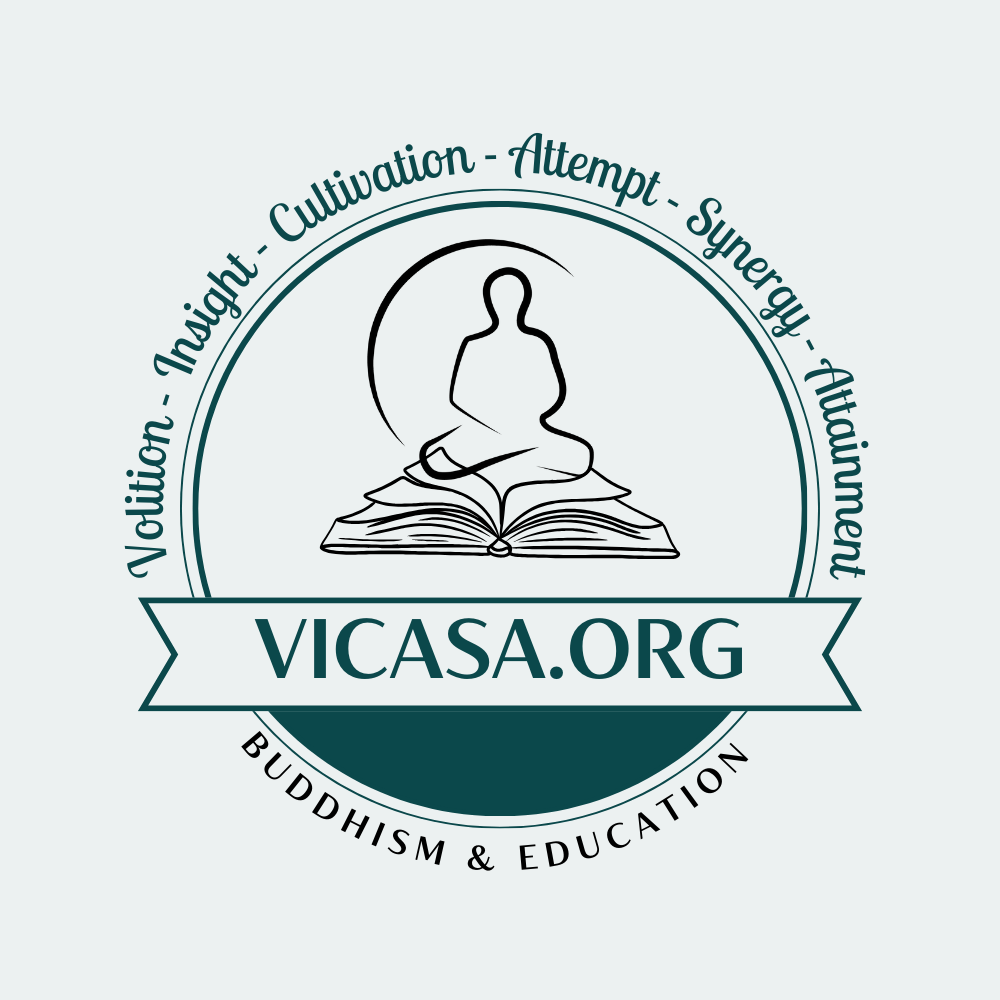
English is a global language and no one can decline the popularity of this language around the world. According to statistics from the British Council (n.d.), over 1.75 billion people speak English, and it is the most widely used language in the world today. Further, more than 2 billion individuals are in the process of learning this language (WANNALISN, 2020, published by the British Council). That’s why English can create more benefits than languages with less opportunity to be used.
1. Bridging human knowledge

Above 60% of the world’s websites are written in English, more than all other languages combined, far surpassing the second most used language, Russian, with 8.6% (Internet Stats & Facts, 2021). We can find any information by typing keywords in English. Thus, with an abundant source of English Buddhist knowledge, we can now easily seek data to foster or compose a thesis without having to struggle with limited Vietnamese sources.
2. Intellectual power

Being proficient in a second language evidences you have an effective brain. It reflects the time, resources, and trade-offs the learner has devoted to becoming skilled at a new language. This is not just a language that is not too complicated to grasp, but a reality that demonstrates our mastery of it.
In addition, it is English that assists us perfect ourselves as genuine learners. A Czech proverb once states, “You live a new life for every new language you speak. If you know only one language, you live only once.” As we all know, most excellent books and renowned documents are selected to be translated into English. Consequently, English also helps us expand our knowledge of the culture of English-speaking countries to accumulate new experiences.
Equally important, English facilitates precious knowledge if anyone chooses to study Buddhism, as Buddhism is a religion of wisdom. Moreover, English aids us in overcoming a novel challenge of diligence – perseverance, a virtue that any Buddhist devotee needs to practice. That’s why most followers who successfully learn English will certainly gain confidence and be able to contribute substantially to many more significant paths. During the learning process, they can somewhat mitigate their ego of shyness and embarrassment.
3. The language of modern Buddhist education

English is the language of the greatest treasure trove of documents in the globe and also the official language in fields such as technology, medicine, and computer science. For Buddhism, that valuable of knowledge can not lack translations of the Tripitaka, commentaries, and sub-commentaries that have been rendered from Pali into English by eminent monastics and scholars. Along with a huge number of valuable Buddhist books that have been refined by predecessors in English, both learning and practice. Hence, as long as we comprehend English, we can access a giant amount of knowledge to strengthen our self-study ability with a simple click on the internet. At a result, we have more opportunities to exchange and study with international masters and become independent learners and true communicators with the desire to light up the fire of Dhamma more and more strongly for humanity in the world.
4. Looking up the Buddhist canons

English is a language with a vocabulary system that is used in more detail according to context than Vietnamese, together with a strict grammatical structure that presents apparent meaning through words. Since Vietnamese is primarily impacted by Chinese, there are many abstract Sino-Vietnamese words when translated into the classics. If we are vague in Vietnamese, we will fail to accurately understand the content being transmitted and waste more time looking up. While each English words is very clear and detailed, we can read the Pali-English bilingual scriptures to evidently grasp the meaning conveyed by the sutta. Then, we are able to “drink water from the source” of Pali accompanied by a comparative English version.
5. English and practical experience

English will help us expand our understanding in our study journey when we have the opportunity to approach other countries to encounter different Buddhist sects. When we can witness it with our own eyes, we will be able to promote our personal perspectives to avoid hastily concluding that the path we are on is the sole and most proper one. In particular, for theoretical learning or meditation practitioners, possessing a certain amount of English will support us in becoming global citizens who can understand instructors’ teachings to be able to communicate and interview ourselves without relying on any interpreter. That is because the translator is not always knowledgeable about the doctrine and fails to reach their real experience equal to ours.

In general, rather than opting for the way of translation so that readers can grasp the meaning of Buddhist canons through the Tripitaka, we would like to select to build with you the key to learning foreign languages so that we can independently open the treasure of Buddhist knowledge to ensure the highest accuracy and purity possible in the process of learning Buddhist teachings. Indeed, Buddhism now needs its believers who are fluent in languages to engage more in the path of preserving and propagating Dhamma in the era of globalization of the 21st century.
With a free online learning platform and a positive-friendly learning environment, we invite you to join us in learning languages through group learning – VICASA LIFELONG LEARNING.

Sayalay Vijjāñāṇī (Tue Minh)
